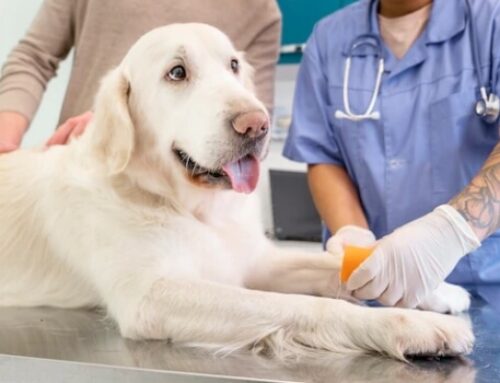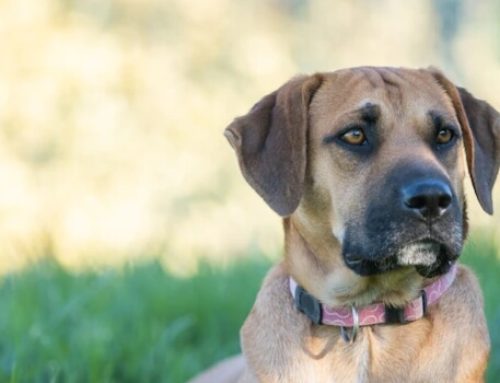When a dog is healthy, its nose typically feels smooth and moist, and its paw pads have a soft leather texture. If these parts become excessively rough and dry and appear crusty, it may indicate a condition known as hyperkeratosis. Unfortunately, it can be very painful for an animal if not properly treated. If you’re a pet owner, you should be aware of this disorder and understand why a visit to the veterinarian is necessary.
A Guide to Hyperkeratosis in Dogs
What is it?
Canine hyperkeratosis is a skin disorder that generally affects a dog’s nose and footpads. It causes the skin in these areas to thicken and harden when there is an overproduction of keratin in their system. When too much of this protein builds up, it often results in dry and crusty skin; the overgrowth can resemble tough strands of hair.
Why is it concerning?
Although hyperkeratosis isn’t a life-threatening condition, the skin can continue to thicken until it gets so hard that it cracks and bleeds. Not only does this leave dogs in serious pain—especially when trying to walk—but it also makes them vulnerable to infection. If you notice this issue, have your pup examined by a veterinarian to avoid further health problems.
What are the common causes?
Hyperkeratosis can develop for a number of reasons. Unfortunately, it’s hereditary in some dogs, which can make it more challenging to prevent. Other canines experience it as they age or if they have zinc deficiencies. Certain diseases also increase the chances of a hyperkeratosis diagnosis, like canine distemper, leishmaniasis, and pemphigus foliaceus, which is an autoimmune disorder.
What are the treatment options?
At this time, there is no cure for hyperkeratosis. The underlying cause has to be identified to treat and manage the condition. If the growth is prominent, a veterinarian can soften and remove the hardened skin on a regular basis. You can also apply a topical ointment at home to help the nose and paws absorb excess keratin. Open wounds can be treated with antibiotics, and you can give pups zinc supplements to counter deficiencies.
If you believe your dog is displaying signs of hyperkeratosis, bring them into Wards Corner Animal Hospital for an accurate diagnosis. Our Loveland, OH, office is led by Dr. Timothy Henehan, and our staff is committed to providing Cincinnati residents with a high standard of care in a safe and comfortable environment. We offer more than 35 years of experience, and our team is qualified to take care of your pet’s medical needs, from routine checkups and spay and neuter procedures to specialized dermatological treatments. Call (513) 683-2883 to schedule an appointment.




